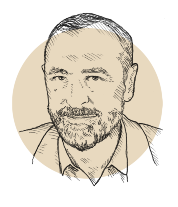France-Amérique: The French often place responsibility for American isolationism on Donald Trump, but your book explains that the movement began with Barack Obama…
Benjamin Haddad: The positions of Obama and Trump are radically different, but the latter has accelerated a pre-existing trend. Requests for U.S. allies – particularly Europe – to contribute more spending to their own defense dates back to Obama, who often referred to the French and the British as “stowaways” of American power. The same goes for the focus on domestic policy, especially in economic terms, and the shift towards Asia with increasingly intense competition against China. Both administrations also ramped down military interventions after the disastrous campaign in Iraq, and preferred to avoid the Syrian question which led to the rise in terrorist groups and humanitarian and migration crises we know today.
Should this make Europe reconsider its own positions?
Yes, now is the time for Europeans to really examine the relationship they have with their own power. Europe should become capable of defending its own military and economic interests by itself.
But does it have the means to do so?
This is not a question of means. Military spending by all European states is the world’s second highest. The problem is the lack of coordination, which is reflected in enormous but unnecessary costs. There needs to be an authentic attempt at dialogue between Europeans, who often fail to speak to each other or talk directly to Washington. This will create true convergence and compromises between countries.
Should we expect a change in America’s stance after the 2020 elections?
If the Democrats win, we can hope for a change on certain multilateral subjects. Any Democrat president will immediately rejoin the Paris Climate Agreement, for example. But Europe cannot build a sustainable foreign policy on the hope of having a U.S. president who is more favorable to our interests. Aside from Trump’s potential reelection, we have seen that the debates in the Democrat primaries are generally focused on domestic policy such as inequalities, student debt, deindustrialization, and the impact of technology. Essentially, Europe will be less important in America’s world view.












